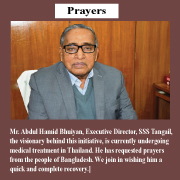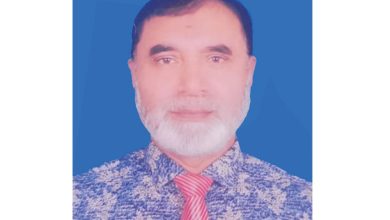Microfinance’s crucial crossroads: An interview with Matiur Rahman of Come to Work


Holiday Post Report: The microfinance sector in Bangladesh, despite its undeniable progress, stands at a critical juncture. Matiur Rahman, Executive Director of Come to Work (CTW), shared his deep insights during a recent conversation. He didn’t mince words. The achievements are real—but so are the hurdles.
He said microfinance in Bangladesh has played a big role in expanding financial inclusion, especially among women and marginalized communities. Over the years, it’s contributed to poverty reduction and sparked a sense of independence at the grassroots level. It’s helped millions access credit who otherwise had no option.
But the sector is no longer just about loans. Matiur pointed out that challenges like over-indebtedness and high interest rates have emerged strongly. “People are taking loans from multiple MFIs just to pay off others. That’s not sustainable,” he said.
He emphasized the need for tighter regulation. “We need a strong legal and regulatory framework. Otherwise, this growth won’t last. And our institutional capacity must catch up too.”
Competition among MFIs, according to him, often leads to misplaced focus—more on volume, less on impact. “We need to go back to the basics. Financial literacy and customer service can’t be afterthoughts,” he stressed.
On the most urgent issues MFIs face, he was quick to list them: over-indebtedness, lack of digital readiness, competition from banks and mobile services, poor infrastructure, and the shortage of trained manpower. “All of this slows us down. And the legal gaps don’t help.”
He acknowledged that government policies can be both a blessing and a burden. Regulations help improve transparency and financial stability. But compliance costs go up. Smaller MFIs especially struggle to cope. “Good policy matters. It has to be consistent, flexible, and done through proper dialogue with the sector,” he asserted.
Asked about new policies to boost the sector, he kept it simple. “We need smarter investment in agriculture. We need legal help from MRA. Technical support. Women-focused financing. MSMEs need more attention.”
Matiur spoke passionately about how microfinance links directly to Bangladesh’s development goals. He noted the UN’s role and the push towards 2041 and the SDGs. “Microfinance is critical for resilience. It helps farmers, fishers, and small business owners in climate hotspots survive and adapt,” he said.
He highlighted the National Adaptation Plan’s eleven climate zones. “From chars to coastal areas, floods to droughts—we’re seeing how climate change is hurting the poorest. Our microfinance needs to be climate-proof,” he added.
On innovation, he offered clear ideas. “We must build long-term ties with banks. We need digital products—apps for loans, credit scoring with alternative data, micro-insurance, savings. We’re already seeing success with solar financing and housing loans.”
Sustainability isn’t just a buzzword at CTW. Matiur explained how they weave it into every layer. “We do social and environmental assessments. We teach clients about responsible borrowing. We keep things transparent. No tricks, no hidden clauses.”
Reflecting on his personal journey, he shared three turning points. A visit to a remote village where microloans helped women escape poverty changed his outlook forever. “It hit me. This is about more than money—it’s about dignity.”
During COVID, he led flexible lending responses that kept borrowers afloat. “That crisis showed us what MFIs are made of.” And a green microfinance project helped him see how clean energy and lending can go hand in hand. “Solar panels and cookstoves saved lives—and the planet.”
He ended on a firm note. “Microfinance isn’t broken. But it must evolve. If we want to stay relevant, we need to change how we think, how we work, and how we measure impact.”
Md. Alomgir Hossen, Microfinance Coordinator at CTW, nodded in agreement. From Parbatipur in Dinajpur, their work is far from over. And as Matiur made clear, their mission is rooted not just in loans, but in lasting, human progress.





